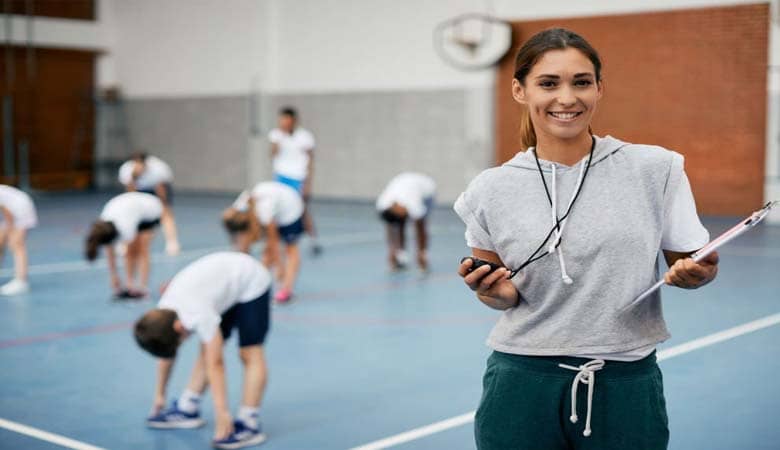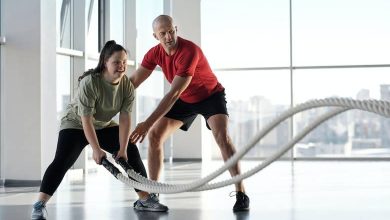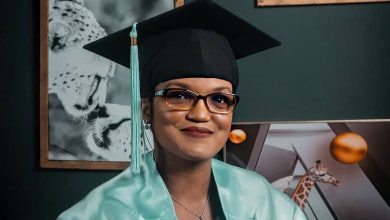How To Properly Become A Physical Education Teacher

Physical education teachers play a vital role in promoting physical fitness, healthy lifestyles, and overall well-being among students. If you’re passionate about sports, fitness, and working with children, a career as a physical education teacher may be the perfect fit for you. In this comprehensive guide, we’ll explore the steps to become a physical education teacher, including education, certification, and professional development.
Determine Your Passion for Physical Education Teaching
Before embarking on the journey to become a physical education teacher, it’s essential to understand the responsibilities and requirements of the role. Physical education teachers:
- Develop and implement engaging, age-appropriate physical education curricula
- Teach students the fundamentals of various sports and physical activities
- Promote physical fitness and healthy lifestyles among students
- Assess students’ physical abilities and progress
- Provide a safe and inclusive learning environment
Obtain a Bachelor’s Degree in Physical Education or a Related Field
To become a physical education teacher, you’ll typically need to complete a bachelor’s degree program in physical education, kinesiology, exercise science, or a related field. These programs generally cover topics such as human anatomy, exercise physiology, sports psychology, and teaching methods.
Complete a Teacher Preparation Program
In addition to your bachelor’s degree, you’ll need to complete a state-approved teacher preparation program to become a certified physical education teacher. These programs typically include coursework in education, child development, and teaching methods, as well as a supervised student teaching experience.
Pass Required Exams and Obtain State Certification
Each state has its own requirements for teacher certification, which generally include passing a series of exams to demonstrate your knowledge in physical education and general teaching principles. Check with your state’s department of education for specific requirements and testing information.
Gain Experience through Student Teaching and Internships
Hands-on experience is critical for aspiring physical education teachers. Most teacher preparation programs include a student teaching component, which allows you to gain experience teaching under the supervision of a certified teacher. Additionally, internships or volunteer opportunities at schools or community sports programs can provide valuable experience and help you build your professional network.
Develop Strong Classroom Management and Communication Skills
Effective classroom management and communication skills are essential for physical education teachers. Take courses or workshops in classroom management, conflict resolution, and communication to hone these skills. Learning how to maintain a positive, structured learning environment will help you create engaging and effective lessons.
Stay Current on Health and Fitness Trends
Physical education teachers should stay up-to-date on the latest health and fitness trends, research, and best practices. Attend conferences, workshops, and seminars focused on physical education, and read professional publications and research articles to ensure you remain knowledgeable in your field.
Obtain Advanced Certification and Specializations
Consider pursuing advanced certification or specializations to enhance your credentials and expertise. The National Board for Professional Teaching Standards offers a certification for physical education teachers, while organizations such as the American College of Sports Medicine (ACSM) and the National Strength and Conditioning Association (NSCA) offer certifications in specialized areas, such as personal training and strength and conditioning.
Network with Other Physical Education Professionals
Building connections with other physical education professionals can provide valuable resources, support, and job opportunities. Attend conferences and local events focused on physical education and join professional organizations, such as the Society of Health and Physical Educators (SHAPE America), to expand your network and access additional resources.
Continue Your Professional Development
Ongoing professional development is crucial for physical education teachers to stay current on industry trends and best practices. Many states require teachers to participate in continuing education to maintain their certification. Seek out professional development opportunities through conferences, workshops, and online courses to ensure you stay at the forefront of your field.
Advocate for the Importance of Physical Education
As a physical education teacher, you’ll play a critical role in promoting the importance of physical activity and healthy lifestyles among students, parents, and the broader school community. Advocate for the value of physical education by highlighting its benefits, such as improved academic performance, increased self-esteem, and reduced risk of chronic health conditions. By championing the cause, you can help ensure that physical education remains a priority in schools.
Be a Positive Role Model for Your Students
Physical education teachers have the unique opportunity to inspire students to lead active, healthy lives. Embody the principles of physical fitness and healthy living by maintaining a healthy lifestyle yourself, and demonstrate enthusiasm and passion for physical activity. By being a positive role model, you can motivate your students to adopt lifelong habits that promote their overall well-being.
Conclusion:
Becoming a physical education teacher requires a combination of education, certification, and experience. By pursuing a bachelor’s degree, completing a teacher preparation program, and obtaining state certification, you’ll be well on your way to a rewarding career in physical education. Develop strong classroom management and communication skills, stay current on health and fitness trends, and continue your professional development to ensure your effectiveness as an educator. With passion and dedication, you can inspire students to lead active, healthy lives and make a lasting impact on their well-being.




